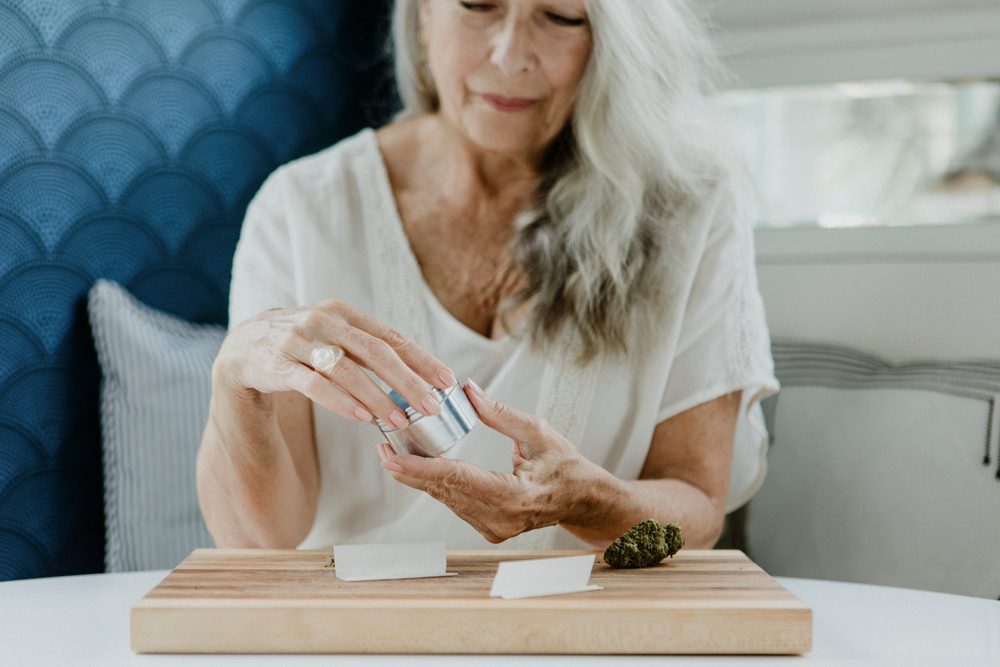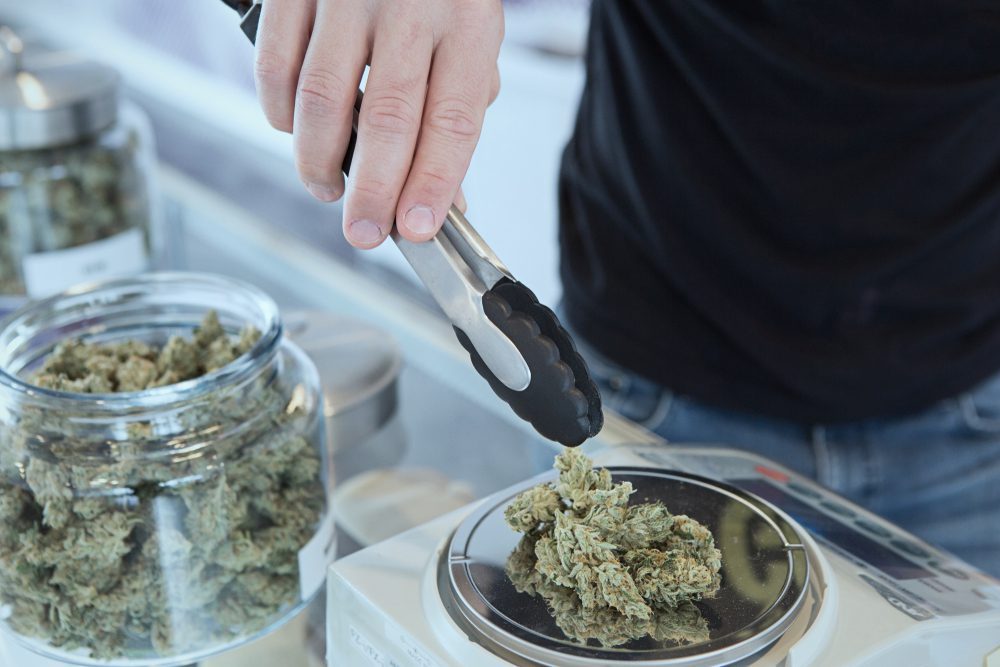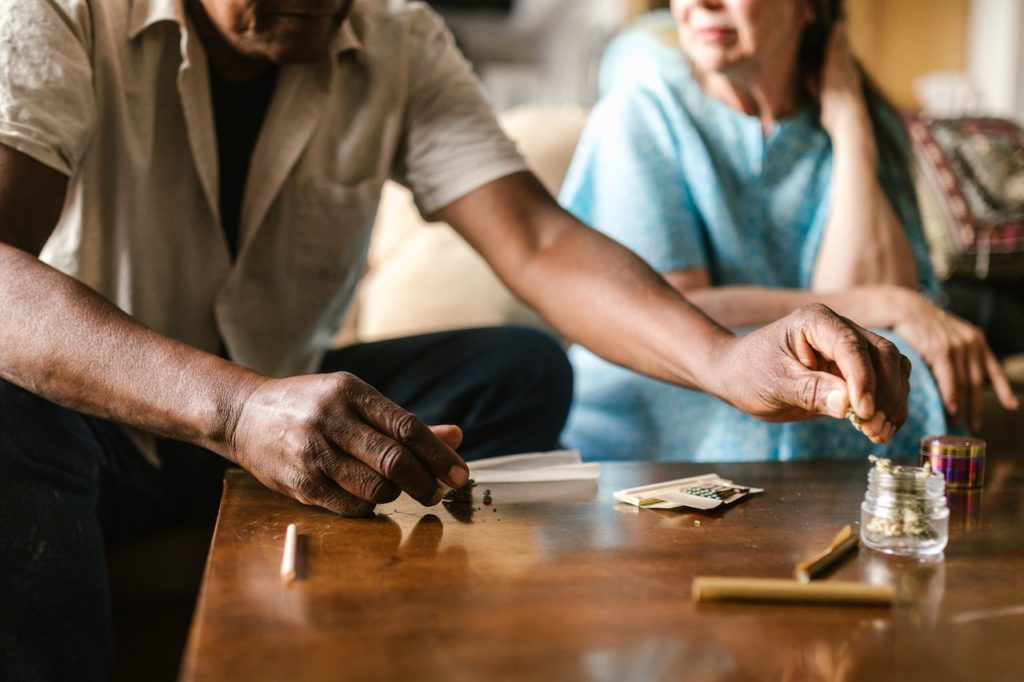Table of Contents
- Baby Boomers’ Opinion on Medical Marijuana
- Baby Boomers Marijuana Preferences
- Final Thoughts On Baby Boomers’ Marijuana
As the average age of cannabis consumers rises, pot usage among older people becomes more widespread.
New data shows that approximately 9% of US individuals aged 50–64 had smoked marijuana at least once in 2018, with only 3% of those aged 65+ doing the same.
Baby Boomers’ marijuana use is on the rise.

Baby Boomers' Opinion on Medical Marijuana
The generation of Baby Boomers commonly gets referred to as the “Woodstock” generation, with the good old American cannabis. This nickname means they were familiar with the culture of cannabis use for fun in the ’60s and ’70s. However, most Baby Boomers gave up cannabis use when the legal ramifications of illicit use became increasingly severe during cannabis prohibition.
When Baby Boomers got married, bought homes, started careers, and started families, they became less likely to take legal risks. There were still some baby boomers who used cannabis covertly for both recreational and medical causes, however, wide spread Baby Boomer marijuana acceptance declined.
Baby boomers' opinion on legalizing marijuana
In general, Baby Boomers’ opinion on marijuana is more supportive of its legalizing than legalizing cannabis for commercial sale. Many modern elderly also fell prey to the opioid crisis and experienced adverse health effects due to the excessive use of opioid painkillers.
Now that medicinal marijuana is legal in most states in the United States, members of the Baby Boomer generation are more open to using it. Many Baby Boomers have included medicinal marijuana in their treatment programs, provided they do so within the legal parameters of their state and under the supervision of a qualified physician.

Baby Boomers Marijuana Preferences
Tinctures and Non-smokables
Baby Boomers have a penchant for tinctures, however. Tinctures are an alternative to raw flowers because they do not require inhalation. Some baby boomers who have trouble breathing may find that the sublingual administration of medical marijuana works better than smoking it.
Tinctures are also more convenient for dosing because you can take them sublingually.
Tinctures are a discrete alternative to smoking cannabis because they do not require any additional equipment. For many of the same reasons that have contributed to the rise in popularity of cannabis tinctures, Baby Boomers are increasingly turning to edible forms of the drug.
The “Baby Boomers marijuana” generation saw cannabis prohibition at its worst. Unsurprisingly, many baby boomers would rather not publicize the fact that they use medical marijuana. The scent of smoke is not left behind on non-smoking routes either, which is great news if your grandkids are planning a visit.

Final Thoughts on baby boomers' marijuana
After seeing the devastation of the opioid epidemic, many Baby Boomers have had a change of heart regarding the use of medical marijuana.
While many still prefer to keep their personal usage discreet, Baby Boomers’ marijuana acceptance has come a long way.
Whether you’re a Baby Boomer or any age, it’s always best to speak with a doc before using medical marijuana.
FAQ
How are aging Baby Boomers becoming associated with cannabis use?
Aging Baby Boomers are increasingly turning to cannabis for various reasons, including managing age-related health issues, improving overall well-being, and exploring alternative approaches to wellness. The evolving perceptions and acceptance of cannabis contribute to its popularity among this demographic.
What factors contribute to the rising interest in medical marijuana among Baby Boomers?
Baby Boomers are drawn to medical marijuana for its potential therapeutic benefits, such as pain relief, stress reduction, and improved sleep. Changing attitudes toward marijuana, coupled with ongoing research highlighting its medical applications, have fueled the interest of this demographic.
What are the potential risks for Baby Boomers using medical marijuana?
While medical marijuana may offer therapeutic benefits, Baby Boomers should be mindful of potential risks, including interactions with medications and individual tolerance levels. It's essential to consult with healthcare professionals before incorporating cannabis into their wellness routines.
